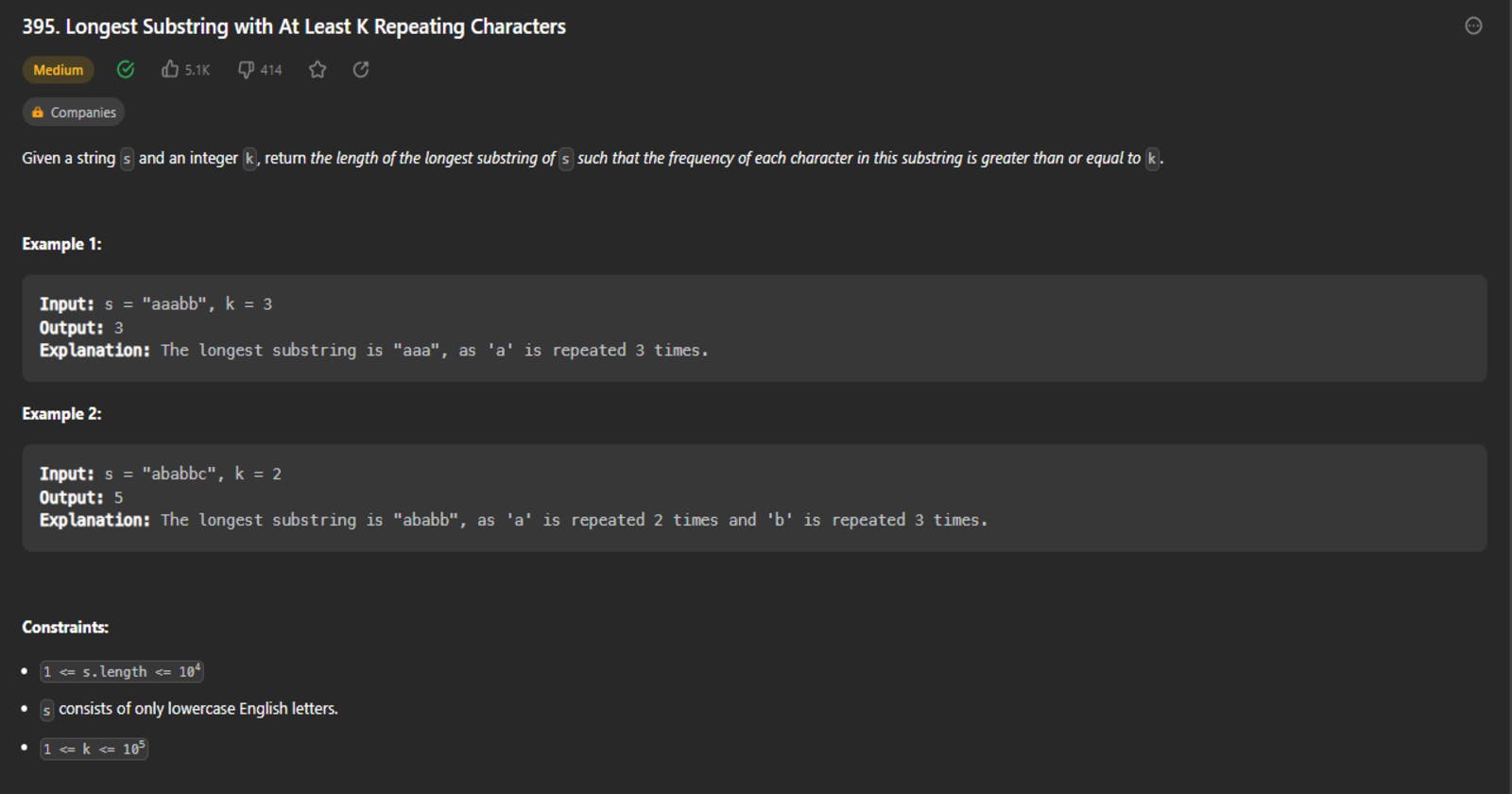Daily Dose of DSA - Day 14
Longest Substring with At Least K Repeating Characters using unordered map and window sliding Technique (O(n)TC(if collisions are neglected) & O(n)SC)
Table of contents
No headings in the article.
//Question link : https://leetcode.com/problems/longest-substring-with-at-least-k-repeating-characters/
//In this approach we wrote a helper function for m distinct elements and called the helper function 26 times for distinct 26 letters in English alphabet
class Solution
{
public:
int helper(string &s, int m, int k)
{
int n = (int)s.size();
int low = 0, high = 0;
int ans = 0;
int cc = 0; // number of elements having freq >= k between [low.......high]
unordered_map<char, int> mp; //for storing the frequency of characters
while (high < n && low <= high) //window sliding pointers
{
mp[s[high]]++;
if (mp[s[high]] == k) //we will keep track of the elements which have frequency >=k
cc++;
if ((int)mp.size() == m && cc == m) //case when number of distinct elements becomes m which have frequency >=k
{
ans = max(ans, high - low + 1); //as we have to find the longest substring we will keep updating the ans
high++;
continue; //continue the iteration
}
if ((int)mp.size() <= m && cc < m)
{
high++;
continue;
}
/*case in which number of distinct elements become greater than m ,we will decrease the frequency of the element at low pointer and check the conditions for cc , if that element has 0 frequency we will erase that element from the map and we will increment the low pointer */
while (low <= high && (int)mp.size() > m)
{
mp[s[low]]--;
if (mp[s[low]] == k - 1)
cc--;
if (mp[s[low]] == 0)
mp.erase(s[low]);
low++;
}
high++;
}
return ans;
}
/*Finally, the function longestSubstring uses a loop to try all possible values of m from 1 to 26 (since there are only 26 distinct lowercase English letters). For each value of m, it calls helper with the current value of m*/
int longestSubstring(string s, int k)
{
int n = (int)s.size();
int ans = 0;
for (int i = 1; i <= 26; i++)
{
ans = max(ans, helper(s, i, k));
}
return ans;
}
};
